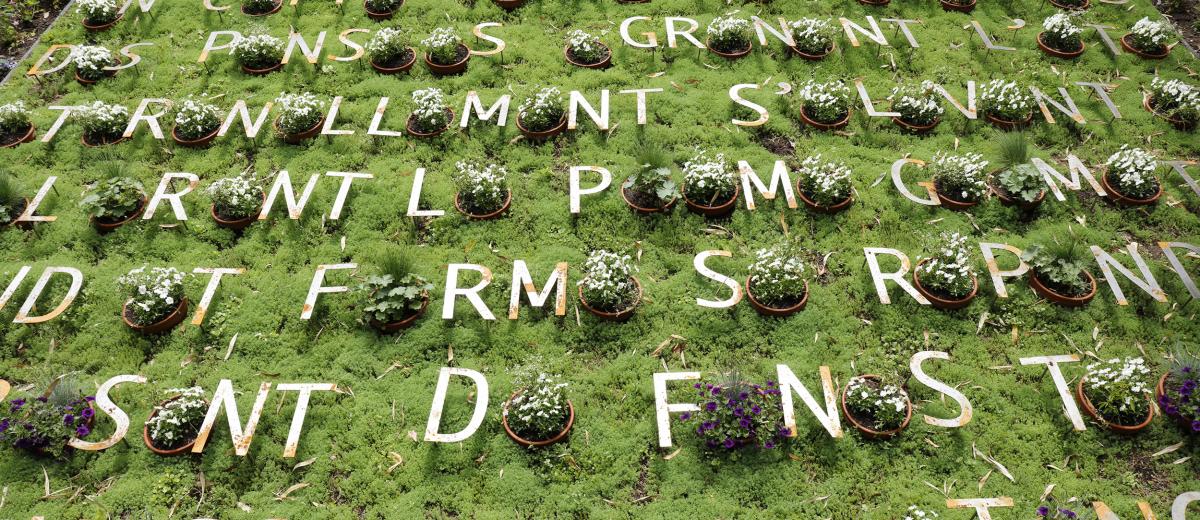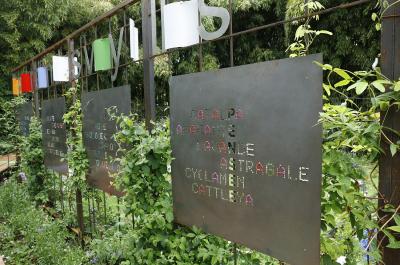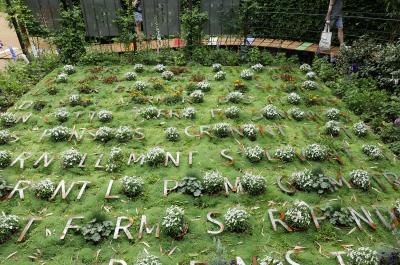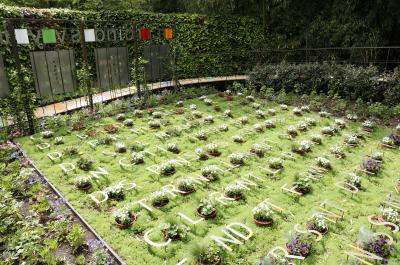For the members of Oulipo (OUvroir de LIttérature Ootentielle / Potential Literature Workshop), poetry is fashioned from words, and words are made up of letters: consonants and vowels. We soon came up with the idea of writing a poem whose vowels were replaced by flowers, five species of flowers, one for each of the five vowels. This would pay direct homage to Baudelaire, for whom “perfumes, sounds and colours correspond” (sonnet, Correspondances) and Rimbaud, who associated vowels with colours (sonnet, Voyelles).
Visitors to our park will have to work out the whole poem laid out before them in the form of a large square of plant life, in which its consonants are already written in rust-coloured metal letters, while its vowels are only the colours of flowers, in shades going from warm to cold, with the E, accented or otherwise, a pure white.
Our garden, which is entitled Le Jardin des Voyelles (The Garden of Vowels), is not simply a treat for the eye, it is also a poem evoking the wanderings of those walking alone through Chaumont-sur-Loire, lost in their thoughts, and a riddle – a pleasure for intellect and senses both, if you like!
DESIGNERS
OULIPO (OUvroir de LIttérature POtentielle)
FRANCE
OULIPO is a name which, for many, in France and abroad, has taken on almost mythical proportions. It stands for a group, “OUvroir de LIttérature POtentielle” in French (Workshop of Potential Literature), which was set up in 1960 by Raymond-Queneau-le-Poète and François-Le-Lionnais-le-Savant. The idea of the two founding peers was to probe mathematics, and sciences in general, so as to develop new literary structures and forms. In this way they have toyed with and tweaked the use of the constraint, either by adopting old constraints, or coming up with new ones.
At the end of several decades’ worth of literary and linguistic exploration, the group has provided ample evidence of the effectiveness of its methods. OULIPO’s work, which ranges from just a bit of fun to the development of major works – such as those by Perec, Calvino, Roubaud – has well and truly earned its place in the contemporary literary landscape.
What is more, for some years now OULIPO has often been called on to make a direct contribution to urban spaces, by supplying texts for writing on walls or monuments. Tramway stations in Strasbourg, the library of the University of Paris 8 and the studs along Esplanade Charles de Gaulle in Rennes are all visible examples of this in practice.
And it is along these lines that a new OULIPO project has taken shape at Château de Chaumont-sur-Loire: Jardin des voyelles (Garden of vowels).



